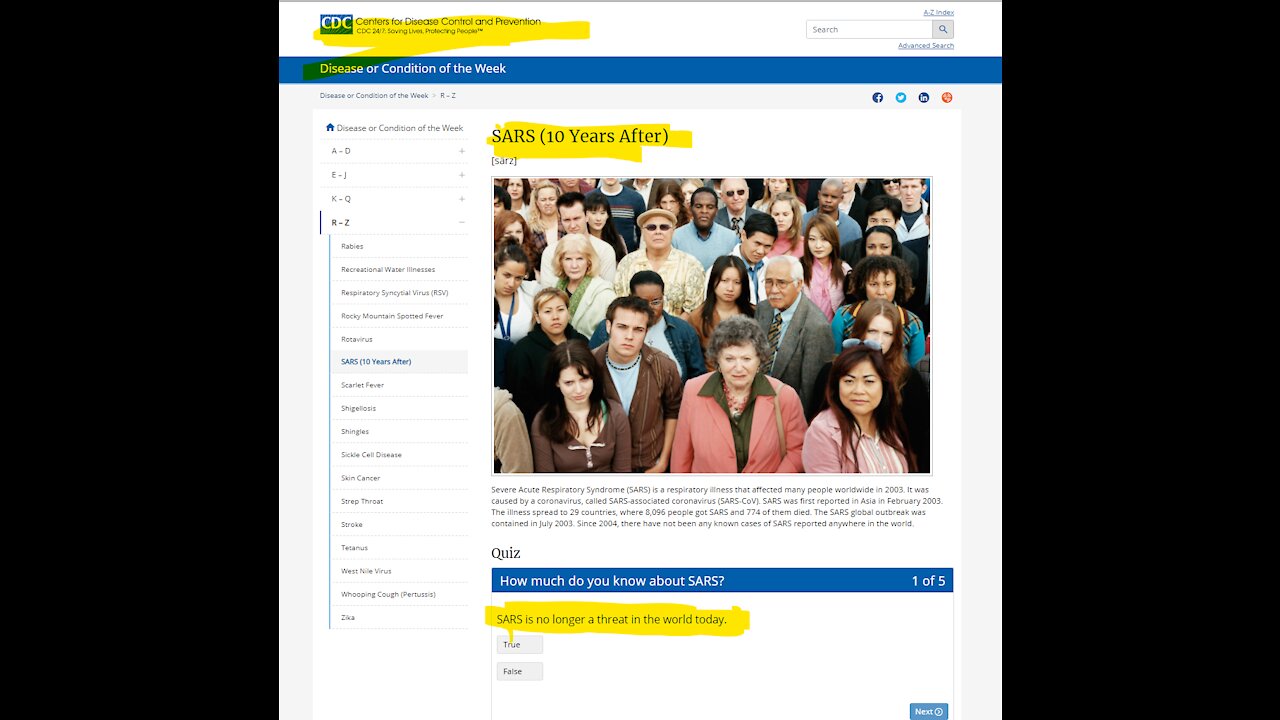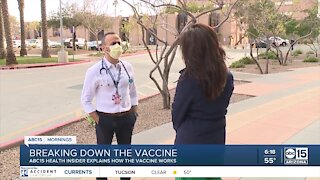Premium Only Content

Coronavirus Conversation: What can 2003's SARS tell us today?
Einstein required a solar eclipse to prove General Relativity: the sun's incredibly bright light otherwise blots out the visual information behind it. So too with current SARS/Covid's obscuring the valid useful information from the prior (2003) SARS epidemic. A full locust-cycle of 17 years passed in the interim.
Did the Chinese make vaccines during that time? (yes)
Did they have success? (Well, no coronavirus until this last leak, so yes)
Were there side effects or problems? (Very likely)
Did they immunize the population? Did that play into China's low numbers outside of Wuhan? Was that hidden? (Unknown)
Everyone speaks about the "new normal" after THIS Coronavirus, but is that a valid worry if 17 years went by since the previous? (Probably not)
This is very much unlike influenza which has a natural zoonnotic (domestic animal proximity) reservoir with humans: Chinese farmers' pigs' being sheltered indoors in the winter. The same doesn't hold true with coronavirus' animal hosts: pangolins and bats. So why worry? (Well, there are interests built around worrying)
Using the same "solar eclipse" effect of blotting out current coronavirus barrage of information helps us look back at what went right and wrong (potentially) with the prior SARS-1 vaccines. Should this give us any concern and/or guidance in choosing from the potentially multiple different vaccines which will be presented to us.
The decision matrix for a 15-year-old, 35-year-old, 55-year-old, 85-year-old: between potential problems from a vaccine and potential problems from the illness itself differs vastly. It's not a "one-size-fits-all" approach, nor should it be treated that way. And on the other end the vaccines, especially when we consider the Indian and Chinese simpler but less effective (but potentially long-term safer) vaccine variants: which one is the right one for you?
-
 35:01
35:01
Tony Katz
3 years agoTony Katz Today: The Conversation of Conviction
176 -
 35:13
35:13
Tony Katz
3 years agoTony Katz Today: Engaging in a Conversation of Fact
63 -
 3:02
3:02
KNXV
3 years agoWhat is in the coronavirus vaccine?
43 -
 2:03
2:03
KGTV
4 years agoCoronavirus tests don't tell the whole story
653 -
 0:25
0:25
Helping People to be more Prepared
3 years agoWhat a true ribbing today
31 -
 17:47
17:47
What Is Truth
3 years ago $0.01 earnedWhat is really happening today?
189 -
 1:30:14
1:30:14
barstoolsports
18 hours agoBarstool Coworkers Compete For Largest Cash Prize Yet | Surviving Barstool S4 Ep. 1
294K36 -
 10:17:12
10:17:12
SpartakusLIVE
14 hours agoMy BICEPS are NOT photoshopped
104K3 -
 1:15:26
1:15:26
Kim Iversen
15 hours agoFinal House COVID-19 Report: Claims Vaccines Were A Disaster But Operation Warp Speed Was a Success...
91.7K142 -
 1:14:19
1:14:19
The Anthony Rogers Show
18 hours agoEpisode 248 - Light Language & Intergalactic Gifts In The Higher Realms
103K9